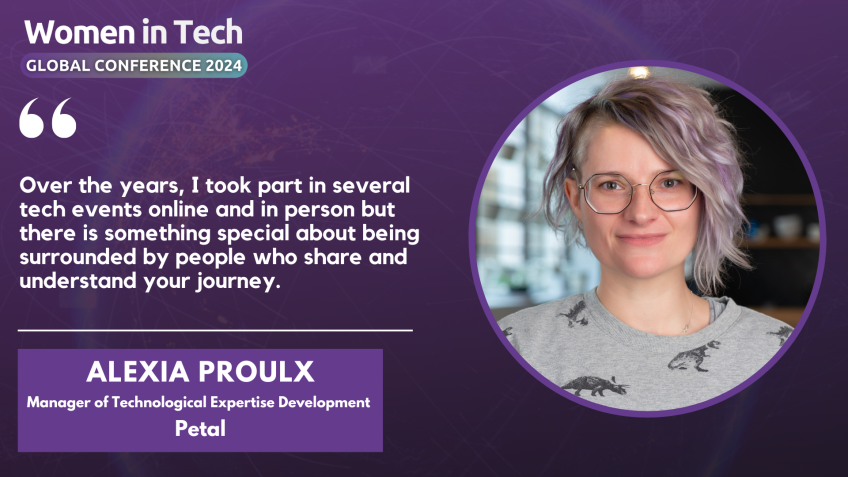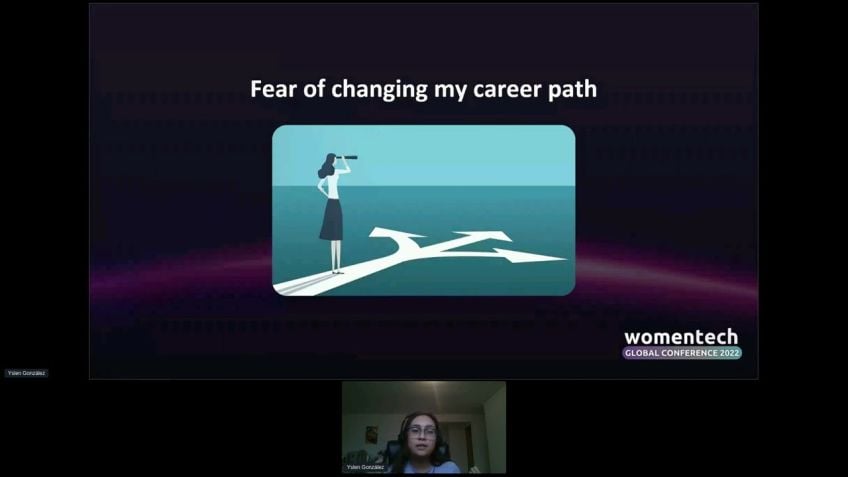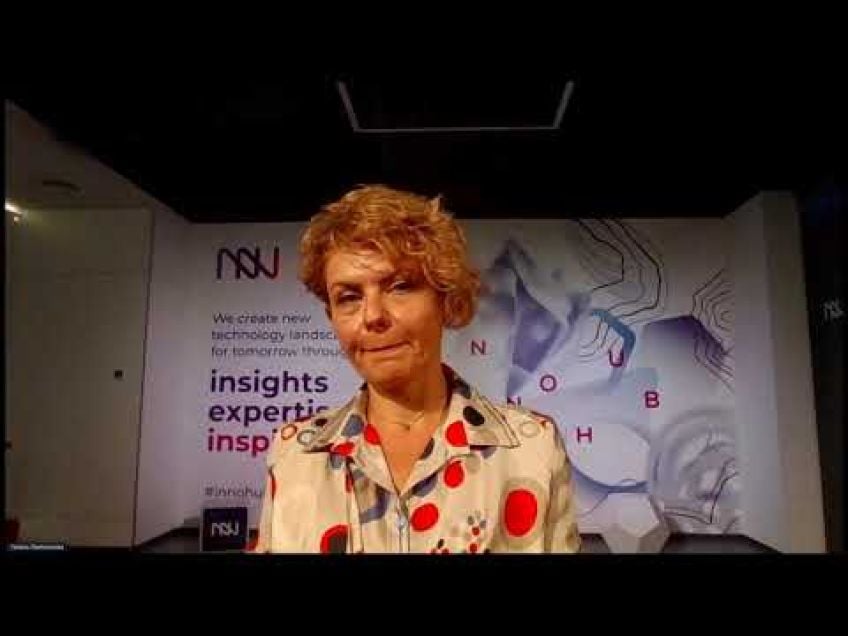The Big Dive from Tech Trainer to Product Owner by Gergana Ivanova
The Big Career Shift: Changing Lanes from Technical Trainer to Product Owner
There comes a time in our professional life when we find ourselves at the edge of a big decision: to hold on or to let go? It's a crossroads that affects many of us, and it's often no less confounding for being common. So today, I want to share a personal journey of my career shift from being a technical trainer to a product owner. It's akin to taking a 'big dive', which offers a perfect analogy given my passion for scuba diving.
From Wandering to Wondering
For about 15 years, I traveled the globe as a technical trainer, reveling in the thrill of changing countries and continents every week. The job brought me invaluable life experiences, teaching me infinite lessons, and exposing me to diverse cultures while I crisscrossed between Europe, Middle East Asia, and Africa. However, over time there grew a desire for a change. I yearned for more stability and growth in my professional life, circling back to enjoying the simpler pleasures of home and the luxury of continuity. Then COVID-19 happened, and as the world slowly shut down, I found myself teaching online and unpacking my potential in other directions.
The Need for Change to Unleash Potential
As I switched to teaching online, I began to feel a certain void, despite being content with my company, colleagues, and work culture. I felt the need to push my boundaries and utilize my latent potential better. This ignited some deep introspection and earnest conversations with people I respected at work.
Opening to Transformation
During what initially felt like a mundane conversation about development plans, my manager floated the idea of an internship, a chance to explore other departments to kindle a new interest. This struck a chord. Recollecting a conversation with a friend who'd seen potential in me being a product owner, this seemed like an excellent opportunity. My treasure trove of experiences, interactions, and understanding of customer needs from my training days would be instrumental in software development and product planning. With a new goal in sight, I embarked on learning Agile and Scrum methodologies, consequently setting the stage for a future role shift.
Moving Towards the Change
Narrative the Move: Learning Agile and Scrum
In my thirst for change, I honed my skills with Agile and Scrum methodologies, reconciling it with my extensive experience in technical training. My manager played a pivotal role, allowing me to explore new dimensions at my own pace while invariably nudging me towards my full potential.
Creating the Learning Path
Establishing a learning path is crucial when you're barking up a new tree. I opted for online courses that allowed me to balance my job with this fresh pursuit. Organizations like Udemy, Coursera, LinkedIn Learning, PluralSight, CBT Nuggets, Coursera, and MasterClass are ideal platforms, offering a plethora of courses catering to diverse areas of development.
Setting Foot in a New Journey: Becoming a Product Owner
During a diving vacation, an internal hiring notification popped up on my screen, seeking a product owner. Feeling ready for the plunge, I moved forward and took on the role. Today, I work with a coherent team of over 20 developers, quality assurance engineers, and UX designers. We've launched significant releases, improved our Agile practices, and continue to thrive under a shared vision.
Nurturing Relationships and Being a Leader
Leadership and relationships go hand in hand. The ability to garner trust and foster relationships means understanding perspectives and solving problems together. Hence, in my journey to be a successful product owner, nourishing relationships has been of paramount importance. Ask, empathize, understand, and ensure everyone moves ahead together.
Conclusion: Embrace the Change
At times, we all feel stuck in our professional lives. But the important thing is to acknowledge this feeling and seek change. Whether we engage in useful conversations, upskill, or alter our career paths entirely, remember, it's okay to take the plunge into the unknown – to take 'the big dive'. As Mark Sorens says, start by leading ourselves: self-leadership, self-awareness, and self-reflection. Take charge of your own development and work towards owning your career path.
Video Transcription
It's great to meet you guys. I will be talking about the big dive or change from a technical trainer to product owner. I am a scuba diver. So there are going to be a lot of uh scuba analogies.Um And uh that's why I decided to call it the big dive because it was a quite a big career change. And um you can see you're gonna be seeing a lot of those, um a lot of those gum uh fish analogies. Um So just a second before I begin, I wanted to ask you, um how many of you have uh graduated university and do the job they studied for? Ok. Well, uh this is a school of ego, right? So that's why uh it made me think of, of schools because I don't do the job I studied for, I graduated as an industrial engineer and uh studied mathematics and physics. And then I was doing training for almost 15 years and now I'm a product owner. That was correct. Awesome. OK, cool. So let me start this video for you. So I used to be a trainer. I used to travel the world. I used to be in a different country every week, uh different continent often. And uh it was amazing. I uh learned a lot. I saw a lot of different places. I met a lot of different people. Uh I, I learned a lot. It was a great experience traveling between Europe, Middle East Asia and Africa.
Uh But then while I was traveling and as the ears started to pile and the adrenaline started to go down a little bit, I started to feel the need for change. And um I wasn't sure what to do though. I wasn't sure where I was supposed to go. And uh a couple of years ago, two years ago when I was in Spain by the lead and when I was packing my suitcase for probably 1/1000 time, I realized that I couldn't do this anymore. I couldn't pack that suitcase for 1000 and the first time, uh the next day who characterized COVID-19 as a pandemic and uh as much as it was shocking to see Madrid and the whole world being shut down, I had to admit it was also a relief for me to go back home and uh relax and start teaching online.
And so I never had to pack up that suitcase again, not for work, just for diving trips. And I was feeling quite relaxed. But then again, I was, I wasn't feeling quite complete. I was happy with the company, with my colleagues, with the culture with the culture we have here. But I didn't feel like uh I was really developing my potential and, and using my potential. So I really needed to find something to make me feel more alive. By the way, I'm not sure that you see the video if it's frozen or now it started moving. OK. Uh Just to give you an idea of the, the crazy trips and places that, that I've been all over the world. Cool. Awesome. OK. Uh So then when I was uh a bit lost and not knowing what to do, I uh I had a conversation with my manager number six at that time, who was a short blonde that uh seem quite, quite um in defenses, but then uh would later learn that she was very uh strong leader and uh was very nurturing and supportive to her people.
Uh So I had a conversation with her when she insisted that we work on my development plan. And uh I was a bit annoyed because I always saw that as a formality and something that we had to sign and say, OK, we've completed the development plan. So I said to her, well, um it's OK. I've been training for 15 years. I've been to so many different uh workshops and seminars. I've gotten so much feedback. I don't think that if I went to just another uh presentation workshop that would be, that would change a lot for me. Um that's not what I need. And um she kept insisted on, on working with me on that and she kept coming with ideas and um I kept rejecting. And then in the end, she said, how about we try to do an internship? How about you take a look at other departments in milestone and uh see a position that you might like in a department that you might like. And you try to, we speak to the manager and with the manager and you join there for whatever time you need, however you feel it's appropriate, um two weeks or months or two months together or, or separate, however you, you decide.
And I thought, wow, that's a great idea. And I went home and I slept on it and on the next day when I woke up, I remember about another conversation, I had, had a couple of years before that with another friend of mine and a colleague. Um again, at the moment when I was feeling puzzled about what I would do in the future. And he said to me, well, Jerry, I think it would be a great product owner. You know, the customers, you see them every day, you work with them every day, you know, they're paying, you know, what they, what makes them happy, what uh change they need. So, uh you know, what kind of problems they have. So it would be a great help to us in software development if you could work with us to, um, to help us build a better product. And, uh, I was honestly, I was, I was very surprised because it had never occurred to me. I didn't even know what product owner was and that such position existed at the time. Um, and I hadn't realized the treasure I was keeping inside me from all those years, teaching, traveling and teaching our partners all across the world. Um, and, uh, then I decided, uh, well, I asked him what I should do and he said, well, you need to learn about agile and Scrum. And I signed up for my first job practitioner course. And it was great and I did it.
But then again, I started, I continued traveling. So adrenaline picked up again and, uh, I kind of forgot about it until I had that conversation with my manager number six. Um, and to go back to her, I, I went back to her and I said, look, I know what I wanna do. I wanna try this internship in software development and, uh, see if I actually like it for myself. So, um, she was surprised and, uh, she was very happy to hear that, that I knew what I wanted to try out. And I just wanted to say, I guess from this first part that it's ok, it's ok to feel stuck sometime. It's ok not to feel in the right place in the right position. Uh, maybe if, if you're, if you're just feeling stuck, if you're working or if you're looking for a job. Um But what was important for me in those moments was to be honest with myself first and to admit to myself that I needed to make a change and not just to um not just to uh settle and accept the position that I was in. And then um I wanted to stress how important it is to look out and speak to your manager, friends, colleagues, people who you look up to uh people who uh you would call for advice, people that you wanna be in one way or another.
Um Those kind of people, we usually call leaders and um they're everywhere among us. And as long as we reach out, we never know uh what could be born in a conversation. And um I did that and if it weren't for those conversations, I wouldn't have been in the position that I'm at. I, I did the internship, I worked with the other product owners. I uh look at um at what is included in their position, what kind of decisions they had to make, how they try to keep the focus um on the team on what's important um in order to build the product that fulfill the, the vision of the product owner. And um and that is why I wanted to also say that we need to sometimes look at the success stories. What is this in the picture. This is a very healthy coral with um some fish around it, probably a shark underneath. So look for those success stories, talk to people who are in the same position as the one that you want to be in. Um do interviews with them, connect with other professionals over different platforms and maybe ask them if they know you what kind of qualities they think you have that might be useful for this position. So that would be a good start.
And then of course, ask them what you need to learn where you need to start. This is uh one of my favorite marble race, the marble race and all the races, they hide under the, the sand to look for prey or to protect themselves. So I was watching how the mother was teaching uh its Children to um to hide in the sand. And um it's OK to learn just because we're not Children anymore. Uh doesn't mean that we need to stop and that we should be stuck in a place where uh where we don't feel that we belong place or a position, as I said. So when you want to create that learning path, my advice is to again, ask, ask your peers, ask your managers figure out what need, what you need to learn. Sign up for some courses, um start with some introductory courses. There are a lot of um introductory courses, free introductory courses online. And there are different platforms that if you like the platform, then you can sign up. I have given here some examples, Udemy or Serra linkedin learning plural site. CBD nuggets grow Google and of course the master class, depending on the area that you want to develop in.
Um So it is OK to reach out for help and to start exploring what I did after that was I signed up for a lot of the plural site courses. Uh Before I got to the official certification and um that um that helped me to be prepared and I didn't know when an actual position was going to open. Uh But it did eventually while I was on a vacation, diving vacation after a day of a lot of diving with a lot of sharks. I, I received an email that they were looking here internally for another product owner. And uh what is happening today is that I managed to work for about 20 people, developers, quality assurance engineers and UX designers. We have managed to improve our agile practices. Um And we have done a couple of large releases together. Most people come to me and say that uh just ask me, what do you wanna do next? What is next? What do you want? What do you want? Uh They are very feeling, very happy and confident uh to follow and to work together to complete our vision. And um this is uh this is one of the best part that uh that I appreciate a lot right now. And it's definitely, um it definitely took me to a more interesting and fulfilling place uh than I used to be.
And um about um about being successful and nurturing your relationships, I believe that in order to be successful, you need to nurture those relationships. So until I get the moment where people can come to me and say, look, if you explain it to us, if you say this is like this and this is like that we trust you because we know we know the product and uh you know the uh the perspective from the user. So um that is very important to be successful to nurture those relationships. Keep your knowledge fresh always and be a leader. Ask them, ask people what they need, ask people what bothers them, what blocks them. Um And uh this way, hopefully you can build a great relationship together and last, but not least, don't be afraid to be a leader. I'm in an informal leadership position now. But um if it's, if it weren't for that, I believe that again, I wouldn't have been successful in the position that I am in right now. Mark Sore says that when we are leading, we should, we should begin by leading ourselves first start with uh self leadership, self awareness, self reflection.
And um I believe that um if we, if we want people to uh to follow us and work with us to fulfill our vision. We definitely need to, to start with ourselves. And if we are stuck in a position or a company or out of job, we are the ones responsible to grab ourselves ourselves by the hand and uh ask ourselves, what do you need? What do you need to study? I will help you out. I will uh I will prepare and make sure that you receive the right education, boost, conversation, interviews, whatever you need um to get to where you want to be.





